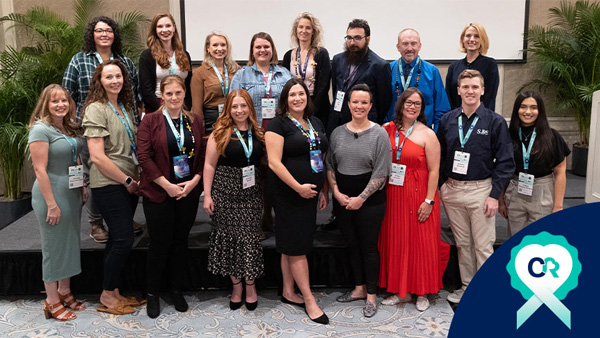The new BACB Ethics Code, aptly named “Ethics Code for Behavior Analysts,” provides a guideline for behavior analysts to engage in behaviors that create an environment for safe and valuable treatment for many individuals. A brand-new introduction section lays the foundation for when and how to use the code, a support that was not provided in the previous ethics code. This introduction along with fewer sections and standards are the most obvious changes to the ethics code. However, there are many other changes that can be found when looking through the new code.
Below are five changes worth highlighting and exploring before taking a deeper dive.
1. Four core principles
The introduction to the new code includes four core principles designed to guide ethical behavior and decision making. The code states that behavior analysts’ behavior should:
- Benefit others
- Treat others with compassion, dignity, and respect
- Behave with integrity, and 4) ensure their competence.
The document includes a definition of each along with examples of behaviors consistent with each principle. These principles can be a valuable resource when an ethical dilemma arises. If a specific code cannot be found to solve the dilemma, the behavior analysts can fall on the core principles to decide how to behave within ethical bounds.
2. Letter and spirit of the code
Tucked within the Introduction under the “Application of the Code” section, there is a brief phrase about considering “the ‘letter and spirit’ of the Code” when making ethical decisions. Though this phrase is not highlighted, it is a very important addition to the new document. In short, this means to not only consider the exact wording of the code and standards (the letter), but also the purpose (spirit). This is very similar to the comparison to topography and function.
Though we may see one thing, the reason or purpose for it could be much larger than what is observed. For example, in the new code the “letter” of standard 1.12 is, “Because the exchange of gifts can invite conflicts of interest and multiple relationships, behavior analysts do not give gifts to or accept gifts from clients, stakeholders, supervisees, or trainees with a monetary value of more than $10 US dollars (or the equivalent purchasing power in another currency).” (pg. 10)
The “spirit” of this standard is to reduce the probability of a strain on the relationship between client and behavior analyst. So, if a behavior analyst receives a one-time gift with a monetary value of $12 when terminating services with a client, the behavior analyst may follow the spirit of the code and accept the gift without violating the code.
3. Glossary
The new code has a glossary, just like the old code. However, it is placed in front of the document rather than at the end. Whether this is to reduce response effort or for aesthetics, the new glossary is worth looking through. Some terms have been carried over from the old to new code, but many are new terms vital to understanding the intent of the presented standards. New terms include assent, conflict of interest, digital content, informed consent, legally authorized representative, research participant, scope of competence, social media channel, stakeholder, testimonial, third party, trainee, and website. Though these terms may have been present in the old code, they were not explicitly defined as they are in the new code.
4. Assent
Assent is a new term in the glossary in the new code but is not a new term in the behavior analysis community. Assent is defined as, “Vocal or nonvocal verbal behavior that can be taken to indicate willingness to participate in research or behavioral services by individuals who cannot provide informed consent (e.g., because of age or intellectual impairments).” (pg. 7) There has been a recent push to include assent in behavior intervention plans, programs, and behavior analysis education and training. It is encouraging to see this small move towards respecting all forms of communication and self-advocacy, regardless of age and abilities.
5. Cultural/diversity awareness
Though the old code included items related to diversity and cultural awareness, it was within broad standards and training was not explicitly addressed. In the new code, diversity and cultural awareness has its own standards (e.g., 1.07 Cultural Responsiveness and Diversity, 4.07 Incorporating and Addressing Diversity). Additionally, it is stated that behavior analysts have to engage in professional development and include topics of diversity in supervision and training. This additions and changes to the code highlight the importance of understanding the full environment of those we work with as behavior analysts (clients and supervisees) and discourages cookie-cutter methods of behavior conceptualization, service delivery, and training.
A closing note
Change can be hard. The changes in the new ethics code reflect the progressive changes in the field and society at large. It will be important for behavior analysts to continue advocating for progressive change. Additionally, the new code holds everyone in the field accountable for their behavior to ensure the best care and services are provided to those who can benefit from our field. The new code went into effect January 1, 2022.
Resources
You can find the new code, the old code, and a cross walk here.
References
- Behavior Analyst Certification Board. (2014). Professional and Ethical Compliance Code for Behavior Analysts. Littleton, CO: Author
- Behavior Analyst Certification Board. (2020). Ethics Code for Behavior Analysts. Littleton, CO: Author

Dr. Emmie Hebert, BCBA-D
Licensed Clinical Psychologist and Board Certified Behavior Analyst
Dr. Emmie Hebert is a licensed clinical psychologist (PhD) and board-certified behavior analyst at the doctoral level (BCBA-D) at JumpStart Autism Center in the Denver, Colorado area. Her work consists of comprehensive developmental evaluations and supporting learners participating in and graduating from applied behavior analysis (ABA) services. She received her bachelor's degree in psychology from the University of Louisiana at Lafayette and Master's and Doctoral degrees in clinical psychology from the University of Mississippi.
Dr. Hebert was fortunate to complete an APA-accredited internship at the Munroe-Meyer Institute in Omaha, Nebraska in the Behavioral Pediatrics Department. Throughout her training Dr. Hebert has always been interested in working with individuals with learning differences. She is grateful for the amazing mentors and trainers that she has had over the years, which has afforded her to serve not only these amazing individuals, but also their families and support systems. Dr. Hebert currently lives just outside of Denver with her partner and her puppy, Crouton.





